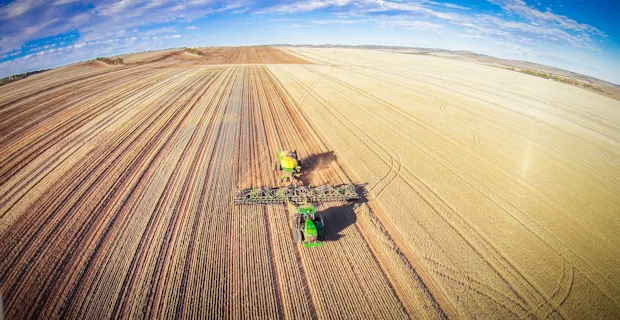As a Product Manager at Agworld, my job is to interpret the many requests and requirements of Agworld customers and work with the development teams to create the features that have made Agworld agriculture’s most popular app.
Product management can be challenging at times not only because of the sheer number of requests that come from Agworld users around the world, but also because the solutions need to consider the needs of thousands of customers who rely on Agworld to grow hundreds of different crops. Building the right solution not only requires a deep understanding of the problem but also a clear grasp of the job our customers are trying to get done. Here’s a quick behind the scenes look at some of the considerations that went into the development of the recent iOS updates.
I recently had an opportunity to follow up on some feedback originating from one of our customer surveys. Our customers were telling us that they loved our planning tool but found it difficult to manage all the identical planned activities that it generated. This wasn’t a new problem, but one that we had never properly solved. The solutions we had contemplated previously either didn’t gel with our existing workflow models or didn’t align to our longer term vision for machinery integration.

I started my hunt for the solution the way I often do by organising interviews with several Agworld users across a range of countries and commodities. Even though I’ve spent my entire life in the agriculture industry, I still rely on conversations with multiple customers to get a deeper understanding of what they’re trying to achieve. In this case, I uncovered a lot of differences between how farmers and agronomists needed the conversion from plan to recommendation to actual to work.
In general, the agronomists that we spoke to wanted to provide their clients with a consolidated set of recommendations which grouped the fields that needed the same treatment together. They told us that the process of converting each planned activity one field at a time was taking too long, even though it reduced the risk that some fields got missed.
As a result, some agronomists were converting a single planned activity, then adding other fields that required the same treatment to that recommendation. This made it easier to tweak the rates and meant that one consolidated recommendation per treatment could be sent to the client. While this was efficient for the agronomist, it also meant that fields could easily be missed and left the old planned activities in the todo lists which made it difficult to see which jobs actually needed to be done.

From a farmer’s perspective, these consolidated recommendations were making it more difficult for them to keep their farm records in Agworld. Not only were the redundant planned activities making their todo and done lists inaccurate, it was now harder to convert individual fields to actuals because they were combined into one recommendation. These two perspectives identified that solutions that focussed on making planned activities easier for Agronomists could actually exacerbate the problems farmers were experiencing when creating actuals.
It quickly became clear that there were two problems that needed to be solved. The first was to make it easier to convert fields to actuals individually when the recommendation contains many fields. Second was to address the Agronomists' needs by making it easier to find and add the fields which have identical planned activities, then automatically clean up the redundant jobs afterwards.
And that’s what we did. We released the first improvement to creating actuals earlier this month and have just released the second piece which makes it easier to find and manage multiple planned activities when converting a plan to a recommendation or work order. The interviews with Agworld customers were invaluable in this instance. They gave us the in-depth insights we needed to understand the entire problem and build the solution in a way that would improve the experience for all Agworld customers. You can read more about the improvements here.
Search product labels with Agworld DBX
A reliable source of plant protection chemical label data so that you can find the information you need for managing weeds, pests and diseases in a safe and effective way. Download product labels and SDSs
Powered by Greenbook
I, along with the rest of the product team would like to pass on a big thank you to all those who have participated in product interviews or provided feedback through our success teams or via surveys. Your investment of time and knowledge are greatly appreciated and continue to shape and improve Agworld.





